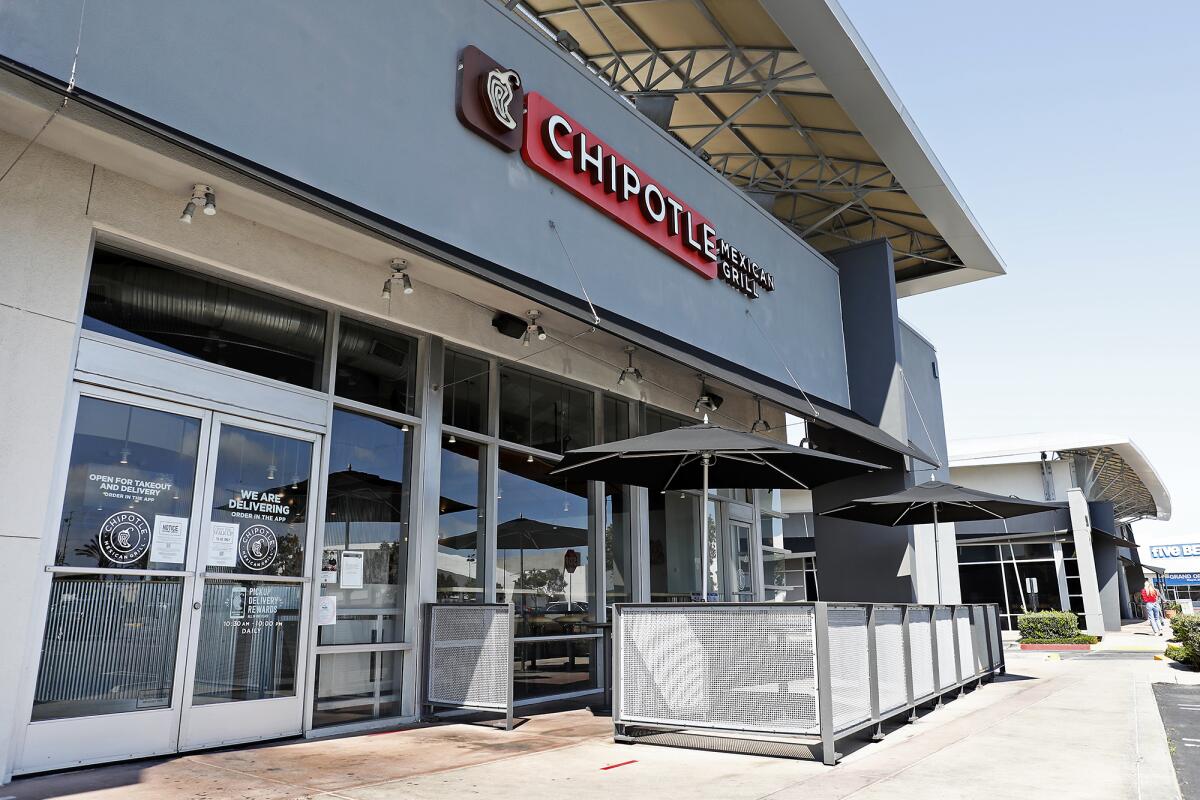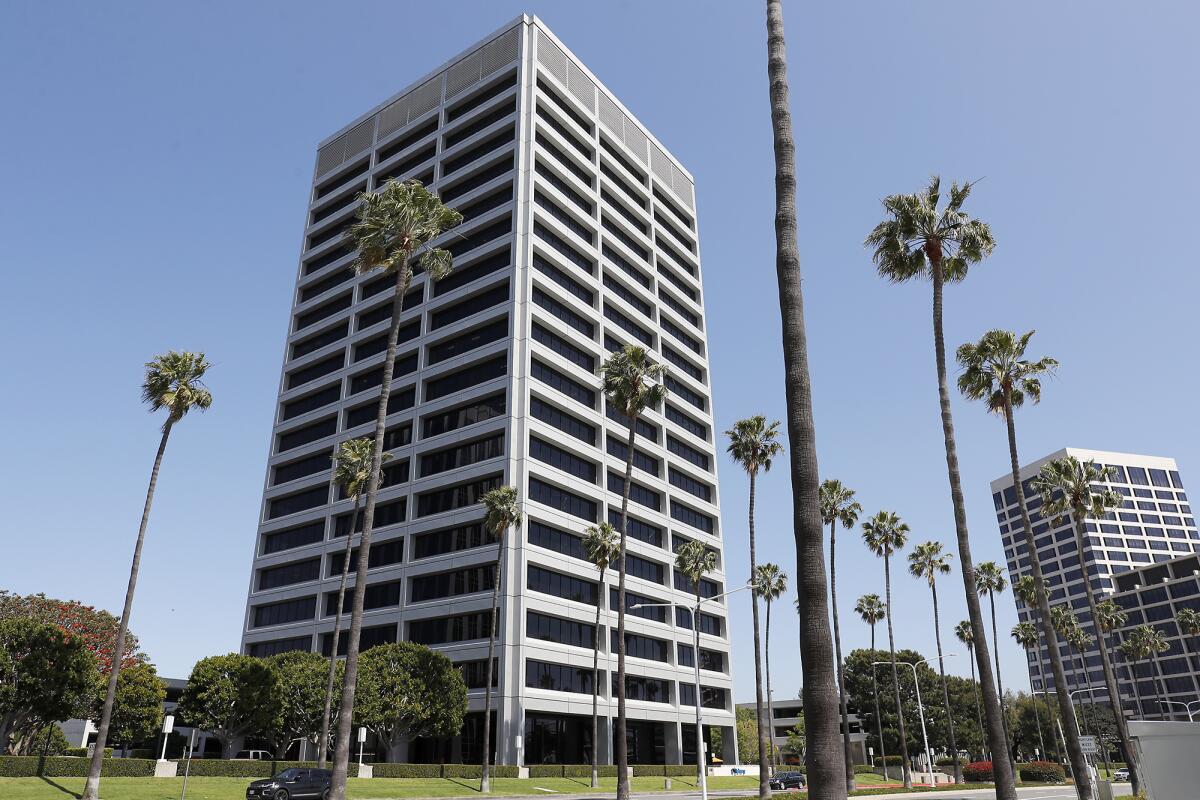Chipotle agrees to pay $25 million following investigation of food-borne illness outbreaks

- Share via
Newport Beach-based Chipotle Mexican Grill has agreed to pay $25 million due to allegedly giving food poisoning to more than 1,100 people between 2015 and 2018, the Department of Justice announced Tuesday.
The fine — the largest imposed in a food-safety case — was levied in Los Angeles federal court after the DOJ charged the restaurant chain with two counts of violating the Federal Food, Drug, and Cosmetic Act by “adulterating food while held for sale after shipment in interstate commerce.” Chipotle also agreed to create a food safety compliance program.
“Chipotle failed to ensure that its employees both understood and complied with its food safety protocols, resulting in hundreds of customers across the country getting sick,” U.S. Atty. Nick Hanna said in a news release. “Today’s steep penalty, coupled with the tens of millions of dollars Chipotle already has spent to upgrade its food safety program since 2015, should result in greater protections for Chipotle customers and remind others in the industry to review and improve their own health and safety practices.”
The fine is part of a “deferred prosecution” agreement, which ensures that the government will move to dismiss the case if Chipotle complies with all parts of the agreement for three years.
“This settlement represents an acknowledgment of how seriously Chipotle takes food safety every day and is an opportunity to definitively turn the page on past events and focus on serving our customers real food made with real ingredients that they can enjoy with confidence,” Brian Niccol, Chipotle’s chairman and chief executive, said in a news release.

Kerry Bridges, Chipotle’s vice president of food safety, said in a news release that the restaurant chain has made “several enhancements” to its food preparation and food handling practices over the last four years with the aim of preventing food-borne illnesses, including reducing the number of employees who touch the ingredients, safeguards against undercooking food and microbiological testing of raw ingredients.
“Chipotle also traces the movement of each ingredient in our supply chain,” Bridges said. “If an ingredient does not meet our high standards, we can quickly determine when and where the problem occurred, and swiftly remove it before it enters our restaurants.”
The criminal charges are related to highly publicized outbreaks of norovirus in Chipotle restaurants. Norovirus causes diarrhea, vomiting and abdominal cramping. Other illnesses were caused by the bacteria Clostridium perfringens, which also causes diarrhea and cramping.
Food-borne illness incidents occurred in restaurants in Los Angeles, Simi Valley, Boston, Sterling, Va.; and Powell, Ohio.
Chipotle admitted in the agreement that some of the food-safety incidents “stemmed primarily from store-level employees’ failure to follow Chipotle’s food safety policies and procedures, including the policy requiring the exclusion of restaurant employees who were sick or recently had been sick, as well as a failure by restaurant employees to hold food at appropriate temperatures to prevent and control for the growth of food-borne pathogens.”
According to the DOJ, Chipotle employees reported stressful working conditions, lack of staffing and inadequate training. From 2015 to 2018, “store-level” Chipotle employees felt a need to attend work even when sick.
“Due to the pressure of not wanting to let their teammates down, or of finding people to cover their work shifts, these employees reported feeling pressure to work while sick, even though this was against Chipotle’s sick-exclusion policies,” the DOJ said.
All the latest on Orange County from Orange County.
Get our free TimesOC newsletter.
You may occasionally receive promotional content from the Daily Pilot.










